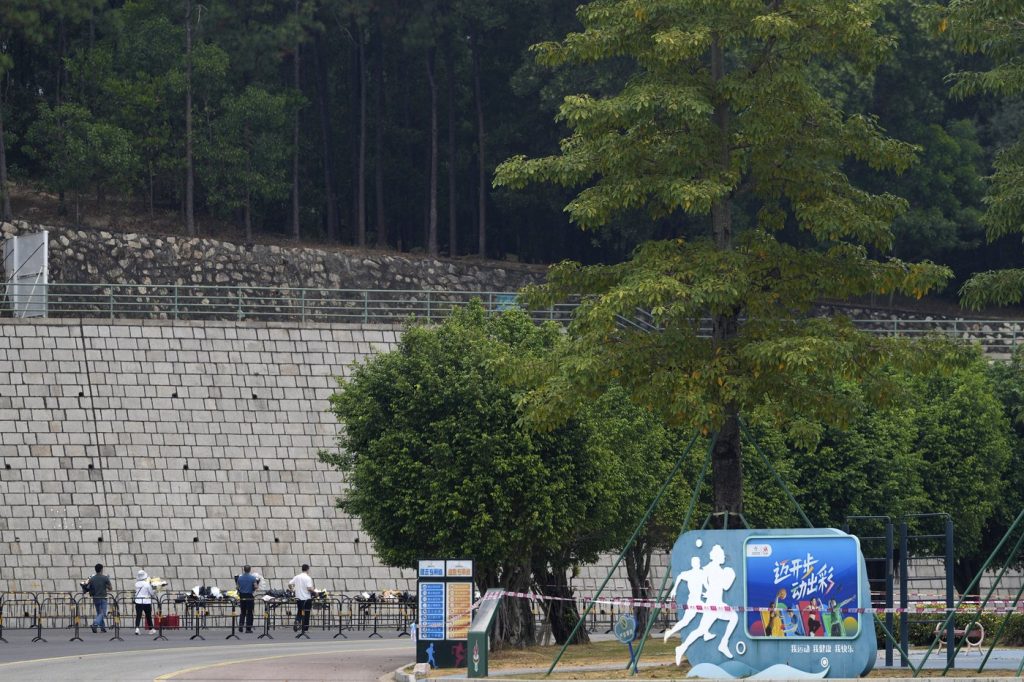BEIJING (AP) — Late last month, an accident occurred when a car struck children near an elementary school in an outlying district of Beijing, as reported by Chinese news sources. A four-sentence police statement indicated that a 35-year-old male driver hit pedestrians due to "improper operation," but it notably failed to mention the school or that the victims included children. Images of the aftermath, showing multiple individuals lying in the street, were rapidly removed from China’s tightly controlled internet.
"We need the truth," stated one user on Weibo, a prominent social media platform similar to X. The ruling Communist Party has intensified information control measures since Xi Jinping assumed leadership in 2012, viewing them as a strategy to curb social unrest. Over time, various sensitive topics, ranging from negative economic news to LGBTQ+ identity discussions, have come under increasing censorship. Recent months have seen mass attacks involving vehicles and knives added to this list of suppressed issues.
Amid increasing public frustration, at least two recent pedestrian-related incidents have prompted criticism online. Experts suggest that the government may be attempting to thwart potential copycat crimes and that local authorities could be looking to cover up their own failures in managing safety. An incident from November, which resulted in a tragic loss of 35 lives, drew immediate governmental concern.
Last fall, a series of violent attacks raised questions about public safety, but determining trends is challenging due to the limited information flow. Historically, authorities have shared basic details about such incidents, often attributing the actions of assailants to societal frustrations, particularly regarding financial hardship. However, a shocking case in November changed this narrative when a man killed 35 individuals in Zhuhai, allegedly because of a divorce settlement. Following this, Xi Jinping's administration reportedly ordered action to prevent similar occurrences.
Eight days later, in Hunan province, another incident occurred when an SUV injured 30 children and adults near an elementary school. The number of victims was not disclosed until nearly a month later, coinciding with the driver’s sentencing. The trend of information suppression appears to have intensified since then. In April, for instance, reports surfaced about a car hitting people outside a primary school in Jinhua city, but the stories posted by several provincial state media outlets were swiftly deleted, leaving the public without any official updates.
Public demand for information seems to grow stronger in response to censorship. Following an incident in Tengzhou on May 4, where a vehicle struck pedestrians at a bus stop, details about the crash were absent for 48 hours, despite online criticism urging authorities to release the driver’s identity and casualty figures. Ultimately, it was revealed that six people had died due to drunk driving, highlighting the impatience and dissatisfaction with the lack of transparency from local law enforcement.
In light of recent events, local authorities in Beijing have begun issuing quick statements that often lack substantial details. Eleven days after the drunk driving case, another incident occurred on May 15, when a car struck several people outside an elementary school in Beijing. The Beijing Traffic Police issued a brief report indicating four injuries without disclosing the proximity to a school. Following this, authorities appeared to impose an information blackout, deploying police along the street and advising locals to refrain from discussing the event.
Further reports emerged on June 26 regarding a car incident in Miyun, located 60 kilometers northwest of central Beijing, where children were reportedly harmed. Although one reputable media outlet confirmed that a hospital was treating child victims, it remains uncertain whether the incident was intentional. The increasing suppression of information regarding such events raises concerns about public safety and accountability in China.











